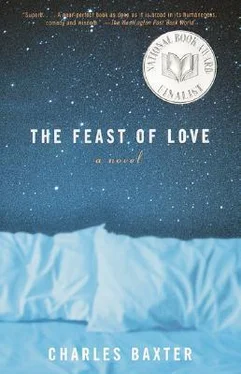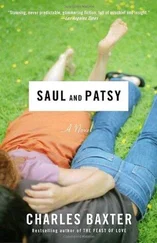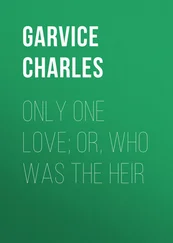When I was in college, my father, a gruff undemonstrative man, died of a stroke on a ladder one Saturday afternoon while painting the house. When he tumbled down to the ground, the can of white paint went tumbling with him, splashing over his face and torso. My father died stretched out on the green lawn, the nearby grass and my father’s face painted white, clownishly, as if by an action painter. I believe it gives me no pleasure to tell this story, but Esther says that it does, I have told it so often and so compulsively to anyone who would listen. He, my father, thought me bookish and unworldly. He sold copper pipe in Chicago and wanted me to go into the business, which I refused to do from the age of seven onward. My father was given to rages, as is Aaron. He suffered from a metaphysical anguish without any apparent cause. I see my father in my son. Both have a talent for withering cryptic conclusive remarks. I never said Kaddish over him. I am not that sort of Jew. It complicates things.
THIS SATURDAY NIGHT, I was pacing through the house while Esther did her sewing. I was trying not to think of Aaron but could not help myself. To block my worries, I had taken up Kierkegaard and was deliberating over the Wittgensteinian pronouncement in Repetition (Wittgenstein, who admired Kierkegaard enormously, was the Knight of Rules) that “He who knows how to keep silent discovers an alphabet that has just as many letters as the ordinary one.” What does it mean, knowing how to keep silent? What kind of silence would this be? How do such silences differ from one another? How does this particular silence contrast with being morosely mute? What is a knowledgeable silence? How would we know or for that matter recognize this knowledge? And what, if I may ask, is the nature of this silent alphabet?
Wittgenstein regarded metaphysics as the lint on a suit. However, after he picked off the lint, the suit itself vanished.
Perhaps these musings would find a chapter in my new book, a refutation of the tendentious and mannered arguments concerning Kierkegaard and Wittgenstein in Herbert Quain’s The Labyrinth of the God.
Outside it was snowing, a dreadful December snow, wet and clumped and cumulative. Sitting in my study, mulling over K’s notice that all life is a repetition — these silent alphabets must have existed before us — but actually visualizing Aaron’s wanderings over the face of the earth, I peered through the window.
I imagined my son pursued by barking dogs.
Helpless in my imaginings (where was Lisbon? my city had faded with the pitiless evanescence of all fantasy), I imagined Aaron, hapless and lonely, an orphan of this midwestern storm, pelted by wet snow, one of the wretched. I would like very much to say that I did not think of Aaron at all and that my thoughts were free, but my son, having disappeared, commanded my thoughts entirely in his absence and silence. At that moment it occurred to me that Aaron had discovered Kierkegaard’s secret alphabet and was writing letters to me, employing it.
A car rumbled out on the street. It was not Bradley’s car, which I recognized, but one of an unknown pitch and timbre. The driver stopped the car, opened the door — it squeaked — and slammed it.
I am not inclined to magical thinking. Nevertheless my breath quickened, I must tell you, at that moment. My heartbeat increased. I stood up and approached the front hallway. Aaron had at last come home, was my intuition. He had given up his rebellion and had returned, remorseful, quite possibly drug-free, and grateful for our forgiveness. Perhaps he would bring someone with him. There would be wildfires of contrition on all sides. Fine, fine. I made my way toward the foyer.
A fist knocked against the door. A hoarse boyish voice called out for help. I opened the door a crack and sniffed the winter air. Aaron, I said. Is that you? Aaron?
Pulling the door open, Esther standing behind me, I saw not Aaron but Chloé, the coffee waitress and recent widow, her face pale and airless and stricken and terrified.
CHLOÉ, I SAID. What is it? Come in. Please come in.
He tried to rape me, she cried out. And I stabbed him and now they’ll arrest me and take me off to jail. I’m done for.
Esther brushed me out of the way. She reached for Chloé’s ungloved chapped hand. Come in, dear, she said, come in right this minute. Esther pulled Chloé inside and shut the door behind her, turning the lock. She did not let loose for a moment her grip on Chloé’s palm and fingers. Esther unzipped Chloé’s jacket — the girl did not at that moment seem capable of this simple action — and took it off. Then she unlaced and removed Chloé’s big shoes and led her into the kitchen, where she sat her down at the dinette table. Shoeless, the girl scattered snow from her jeans down the hall, past the ticking clock. Don’t say anything, Esther instructed her. Just warm up for a moment, and I’ll make you some coffee. No, not coffee. Tea.
He tried —
— Just a moment, please, Chloé. Just wait, Esther said. Then she turned to me. Harry, you must leave us.
Nonsense, I said.
It’s okay, Chloé said. He can stay.
No, Esther insisted. Harry, go back to your study. Please, open a book.
Open a book?
She took pity on me. Do as I tell you, Harry. Open one of your books. Ten minutes. Give us ten minutes here.
Who tried to rape you? I asked. We must call the police.
Harry! Esther said. She rose and with a will of iron pushed me with both hands out of the kitchen. She pushed me into the living room and then down the hallway to the stairs. She would have pushed me up the stairs to my study, but I had agreed in my mind to go up there anyway.
Nevertheless, at the landing I turned around and waited. I could not help but be curious. What rape? And who the perpetrator? The door to the kitchen closed behind Esther, and I heard from in there female murmurings. Chloé said something, Esther said something in return. Women have this way of excluding men from discussions of domestic importance. Around the house we are befuddled by their private plans and strategies. I trudged upstairs.
THEY WENT TO THE POLICE, leaving me behind in the house. But Chloé, having not been penetrated or otherwise assaulted by her father-in-law, declined to press charges for criminal sexual assault or to testify against him, although she was encouraged to do so. They calmed her fears of being arrested, Metzger having all the bad unsavory cards in this particular deck. Late that night, she returned to our house and called her parents, who had made their way home by tow truck and taxi. Esther would not let her drive herself home. She gave Chloé a spare nightgown — they were the same height, Esther and Chloé — and put her to bed in Aaron’s room. Much of the night Esther sat there on the edge of the mattress, until Chloé slept.
The next morning Esther rose, I won’t say “joyfully,” but with serious intent. She called in to her job and to her boss, informing everybody that she would not appear. In the kitchen she prepared orange juice, scrambled eggs, toast, and bagels. Chloé came in wearing Aaron’s too-large green bathrobe, and I must say it was a shock, seeing her dressed that way, barefoot in our kitchen as she had been at her wedding reception, dressed in our son’s robe, then a priestess of Eros, now brought low.
She managed a smile for the two of us, one of the more heartbreaking gestures of politeness I have ever witnessed.
Good morning, she said, and she started to cry. Esther rose up faster than I did and took the girl in her arms. I can’t eat scrambled eggs, Chloé said, huddled inside Esther’s arms. Because I’m pregnant, they make me sick or something.
You don’t have to eat anything.
Читать дальше
Конец ознакомительного отрывка
Купить книгу












